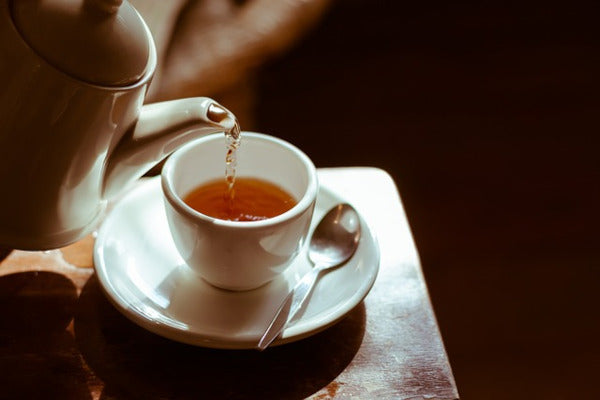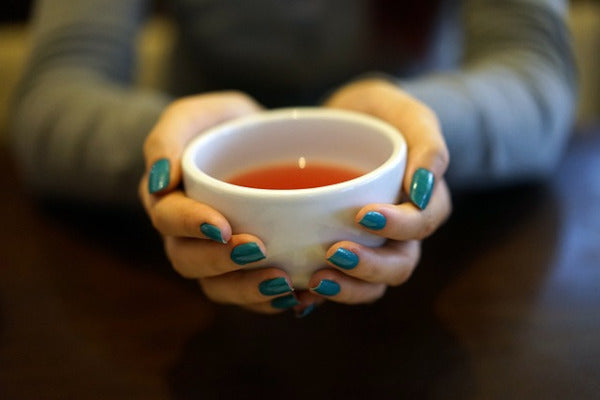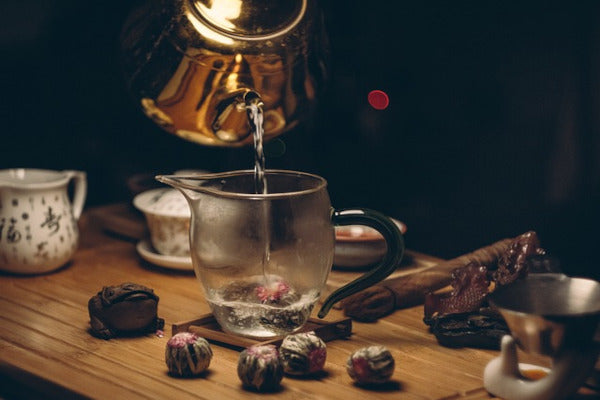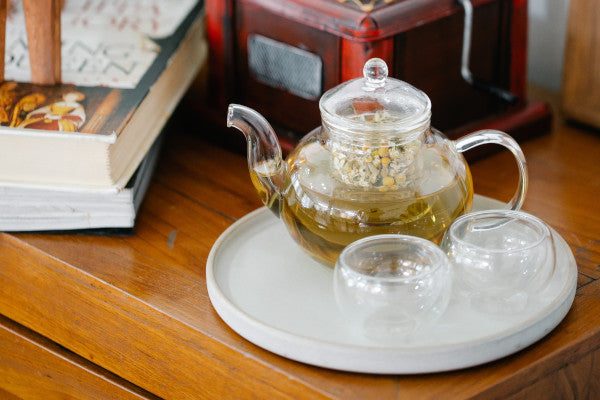The common jasmine is native to northern India and Persia and has been introduced to other parts of the world. It is acclimatized in central and southern Europe and has been widely cultivated for the perfume industry. It grows between three and a half and six meters tall and has dark green compound leaves with three pairs of leaflets and a larger terminal one. The fragrant white flowers open at dusk and close with sunrise.
History of Jasmine Green Tea
Jasmine bears a Persian feminine name—Yasmin means "gift of God"—and is considered the queen of flowers. It is believed to have existed in Egypt before 1000 BC and is said to have arrived in China during the Northern Song Dynasty. Over time, the various perfume varieties spread along maritime trade routes, beginning in the regions bordering the Arabian Sea, crossing the Red Sea to Egypt, and later along the Aegean Sea to Turkey and Greece.

Jasmine later spread throughout the Mediterranean basin, passing through Egypt, Algeria, and Morocco, and reaching Western Europe via Spain and the Moors. In Egypt, it symbolized Isis, the queen of the moon, possessor of secrets, magic, and healing powers.
Semi-fermented green tea is used as the base for making jasmine green tea. During manufacturing, depending on the production method, the jasmine flower aroma is applied by blending the green tea with the flowers, or another method is used, such as vapor deposition, which extracts the aroma from the jasmine flower petals, and the green tea absorbs the flower's aroma. In high-quality teas, the flowers are hand-sifted after this process.
Jasmine green tea is often enjoyed at dinner parties and helps quench thirst. Jasmine tea is said to have many positive health effects, although not all of them have been scientifically proven. However, it contains a number of valuable ingredients, making it a healthy, enjoyable beverage whose aroma is a balm for the soul.
The basic ingredients of jasmine green tea are vitamins, minerals, tannins, and caffeine. Jasmine green tea contains caffeine, or theine, but it's a contrast to the caffeine in coffee combined with tannins, so it enters the body slowly. Therefore, jasmine green tea has a less stimulating effect than coffee and is more refreshing and invigorating. The caffeine content of tea varies from variety to variety, depending on whether the green tea is made with leaves with lower caffeine levels or buds or leaves with higher concentrations.
Jasmine green tea contains a wealth of important vitamins such as A, B, and C12, as well as minerals such as fluoride, magnesium, potassium, copper, nickel, and many others. It also contains tannins, including EGCG, essential oils, and saponins.

Jasmine tea is one of the most famous teas in China, thanks to its delicate aroma from the budding jasmine flowers. If you enjoy jasmine tea, this is perfect for special occasions, as it creates a sweetly fragrant cup with delicate jasmine undertones. Jasmine tea is recommended to calm anxiety, relax the body, enliven the mind, and help with lung and respiratory problems, as well as general breathing. It also helps improve appetite and relieves stomach discomfort.
Benefits of Jasmine Green Tea
Aside from learning its history, you're probably wondering what green tea is good for. Take note:
- Reduces cancer risk: Jasmine tea is rich in antioxidants and can therefore fight free radicals that cause aging and deterioration. It's especially good for preventing lung cancer.
- Reduces cholesterol: Organic jasmine green tea lowers blood pressure and cholesterol, strengthens the immune system, and prevents arterial disease.
- Analgesic properties: Jasmine flowers contain salicylic acid, as does willow. For this reason, drinking an organic infusion containing this acid is effective in relieving headaches and similar problems. It's also relaxing.
- Helps with weight loss: Another important benefit is that jasmine green tea is a weight-loss product. Some studies have shown a link between drinking green tea with lemon and a reduction in fat cells in the body.
- Good digestive: A cup of matcha green tea with some jasmine flowers an hour after meals can do wonders for digestion.
- Fights bacteria: In addition to fighting bacteria, organic jasmine tea is beneficial for the formation of good bacteria that help our bodies, for example, with digestion.
- Regulates insulin production: Jasmine tea consumption is believed to reduce the chances of developing diabetes.
In addition to all these health benefits, a cup of jasmine green tea is always a pleasure for the senses, offering an exquisite flavor and helping you relax. Therefore, we encourage you to prepare your cup of tea with this healthy variety.
You can find this organic tea at Tétique. Plus, if you own a business in the hospitality industry, a café, or a restaurant, you can buy Jasmine Green Tea in bulk and offer your customers a product of the highest quality and the perfect concentration.






